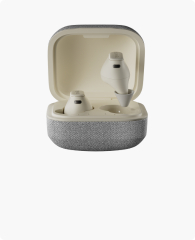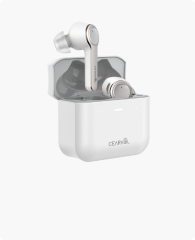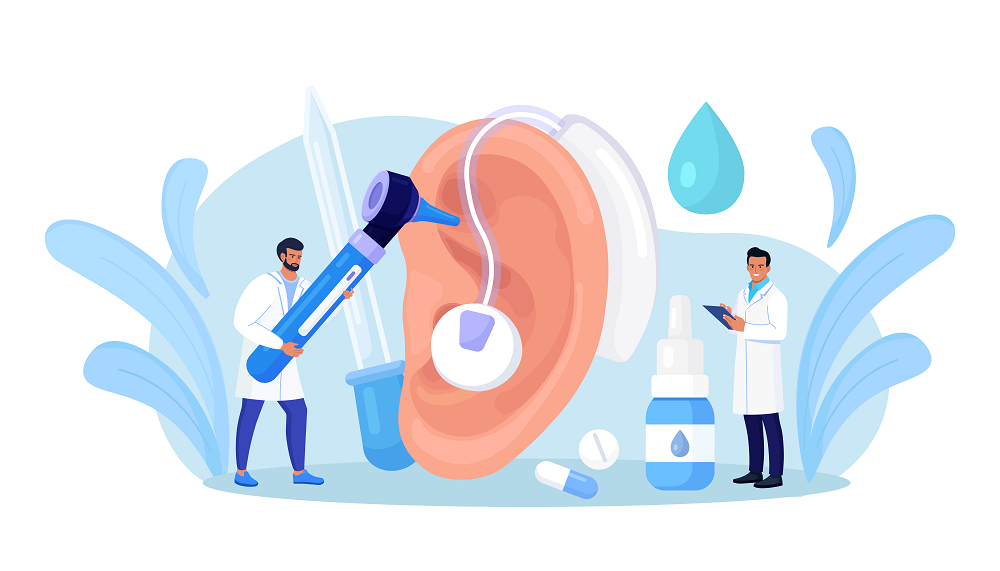‘Hearing Issues’ is our ongoing series where the Cearvol team goes in-depth on specific ear problems, hearing issues, and hearing aid terminology. We believe knowledge is power, and our aim is to help all our customers better understand their own hearing health. This time, the topic is conductive hearing loss.
🚀 Navigate This Post
You may also be interested in:
- Tinnitus and Hearing Loss: What's the Connection?
- Ringing in Ears? Cost and Value of Best OTC Hearing Aids for Tinnitus
- Hearing Issues: Sensorineural Hearing Loss
Part 1. What is Conductive Hearing Loss?
The term conductive hearing loss encompasses several different kinds of hearing loss conditions. The overlapping factor is some sort of blockage in the middle or outer ear that stops sounds from reaching the inner ear and being received by the brain. Your actual nerves and hair cells could be perfectly healthy deep within your ear, but the sound just isn’t getting to them.
Part 2. What are the Symptoms of Conductive Hearing Loss?
Like with other kinds of hearing loss, people with conductive hearing loss will have some difficulty hearing speech clearly. As you speak, you might notice your voice sounds a little different in your head. Often it can be a sudden change in your hearing, and it might only happen in one ear. Depending on the cause of your issue, you could feel pain or intense pressure in the affected ear, and even a strange odor. If you’re just getting well after a cold or sinus infection and your hearing goes in flux, that’s a sign of conductive hearing loss as well.

Part 3. What Causes Conductive Hearing loss?
Often, this kind of hearing loss is due to excessive ear wax build-up or a foreign object blocking the canal (for example, kids putting something small in their ears and it gets stuck). Water collecting in your ear canal can create this hearing loss, too. If you’ve ever dealt with swimmer’s ear, you’ve had a form of conductive hearing loss. Other causes of conductive hearing loss include:
- Middle ear fluid due to ear infections or a cold
- A perforated or otherwise damaged ear drum
- Bony lesion growth
- Physical trauma to your ear bones
Part 4. What are the Treatments of Conductive Hearing Loss?
The good news is that unlike sensorineural hearing loss, conductive hearing loss is often temporary and reversible with proper treatment. The specific treatment for your hearing loss depends on the cause of the issue. Your physician might prescribe an anti-fungal prescription or antibiotic to take care of an ear infection. You might also be given prescription ear drops for swimmer’s ear. That said, severe trauma to the area (especially the eardrum) could require surgery.
If you have ear wax build-up, it could be tempting to stick a Q-tip in your ear canal or use hydrogen peroxide to get it all out. Some people even go with an alternative ear cleaning treatment like candling. None of these are a good idea.
At Cearvol, we highly recommend you avoid those options because they can actually cause even more hearing issues. For instance, Q-tips actually push your ear wax deeper into your ear, building up the blockage even more. Hydrogen peroxide can dry out the skin in your ear canal, making it vulnerable to infection. Ear candling not only doesn’t work to clean your ears, but it’s also a fire hazard. Candling could also actually clog up your ears even more with the melted paraffin involved in the process!
Instead of these dangerous options, your ear, nose, and throat doctor or your audiologist can help safely remove the blockage in their office. If you’re still struggling with wax build-up from week to week, there are over-the-counter ear canal solutions designed to safely clean your ears at home. Just make sure to follow the instructions carefully. Gently cleaning your ears with a soft washcloth while you shower can also help avoid build-up in the first place. And it’s worth noting that having some ear wax is perfectly normal. You just don’t want it to build up to the point of conductive hearing loss.
Part 5. Mixed Hearing Loss
It’s important to note that you could be suffering from a mix of conductive and sensorineural hearing loss. For example, your physician has removed the blockage from your ear, but voices still sound a little muffled on that side. After administering a hearing test, your audiologist might suggest another treatment for your sensorineural hearing loss even after the conductive hearing loss issue is taken care of. This is where OTC hearing aids can come in.
While hearing aids don’t cure hearing loss, they do make it easier to navigate the world around you. They alleviate the intense strain of your brain overcompensating to deal with that hearing loss. Even if you have mild loss, hearing aids can greatly improve your overall quality of life.
Our FDA-registered hearing aids are affordable and effective for the large majority of people with hearing loss issues.








Leave a comment
All comments are moderated before being published.
This site is protected by hCaptcha and the hCaptcha Privacy Policy and Terms of Service apply.